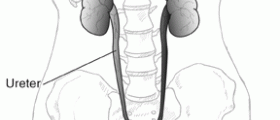
Proteins and Proteinuria - General Info
Proteins are rather important components of the human body. Apart from being one of the constituents, proteins are also engaged in numerous processes in human body. Proteins are essential for maintaining the structure of muscles, bones, hair and nails. Their role is to fight against infections, provide with balanced coagulation and maintain the desirable amount of water in the body.
Proteinuria is a condition which features with the presence of proteins in the urine. This condition is also known as ambuminuria since urine contains increased amount of albumin, the main protein in the blood. Blood is normally filtered in the kidneys and the kidneys take care that substances which body needs stay while waste products are eliminated. Albumin and other proteins are normally preserved. Majority of proteins are way too big to pass the kidneys' filters and be excreted in urine. Still, if these filters are damaged there is a chance of proteins to be lost. Proteinuria is a symptom of chronic kidney disease in which kidney filters are significantly damaged. Chronic kidney failure results from diabetes, elevated blood pressure and certain inflammatory illnesses of the kidneys. Urine is routinely tested for the presence of proteins and this way the disease can be identified in an early stage and patients can be treated properly.
Symptoms and Signs of Proteinuria
The patients develop no symptoms or signs in the early stage of proteinuria. In this stage the presence of proteins in the urine can be only identified by urine tests. If there are large amounts of proteins in the urine the urine looks foamy. If not found on time, further loss of proteins causes swelling of the hands and feet. In some cases even the face may be swollen. Swelling always points to significant loss of proteins.
Tests for Proteinuria
Accurate protein measurement requires a 24-hour urine collection. This means that during 24 hours the patient collect his/ her urine in one container which is supposed to be refrigerated. The collection starts with the first urination in the morning and ends with the first urination the following morning.
The progression of science has led to easier way of setting of the diagnosis. Namely, a single urine sample may be sufficient enough to determinate whether there is or there is not proteinuria. The measurement is called a urine albumin-to-creatinine ratio.
If one is suffering from proteinuria the doctor performes additional tests and examinations to establish the underlying cause of the protein loss. The patients are then prescribed certain medications which bring the underlying illness under control and take care of proteinuria. Patients suffering from chronic conditions such as diabetes or high blood pressure need to take medications regularly, control the disease and this way the function of the kidneys will not be disturbed.

















Your thoughts on this
Loading...